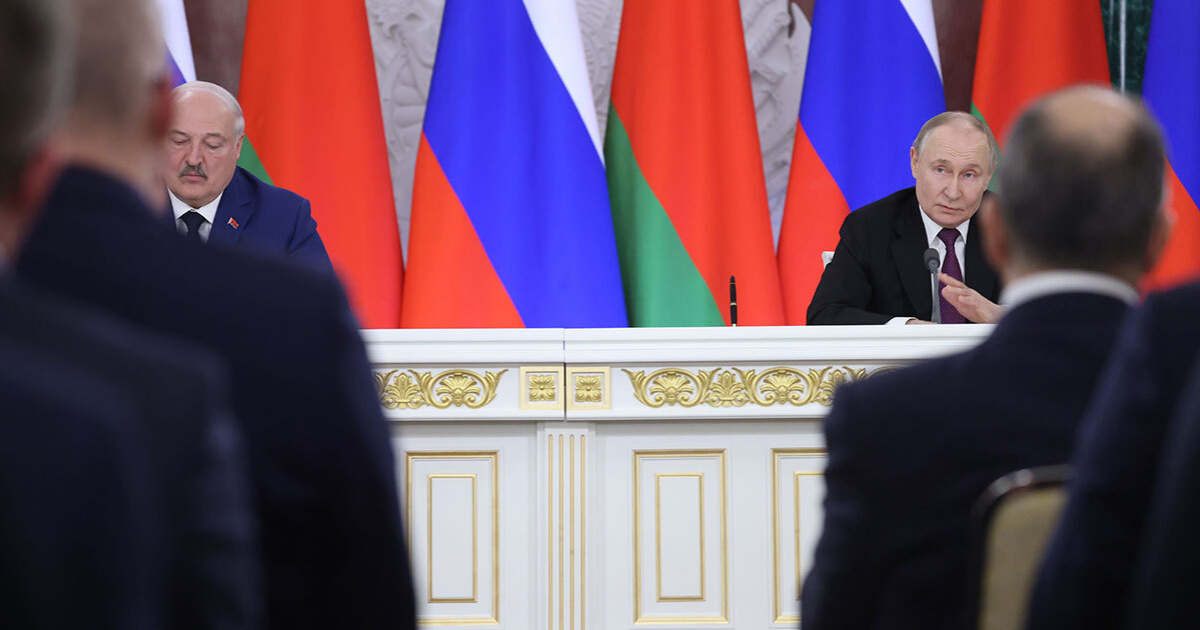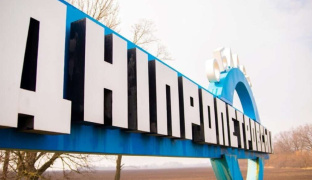The economic support of Ukraine declared by the European Union has suffered a significant setback as soon as it encountered the first difficulties. We are referring to the ban imposed by neighboring "friendly" countries on the export of agricultural products from Ukraine. The solutions found can indeed be considered compromises, although the issue of unhindered access for Ukrainian agricultural products to the European market has not been resolved yet. Despite the official decision by Brussels to extend for a year the duty-free (without quotas and tariffs) import of all Ukrainian goods, as announced by Prime Minister Denys Shmyhal on May 4th.
The Eurograin crisis...
The problem, which led to five neighboring countries (Poland, Hungary, Slovakia, Romania and Bulgaria) imposing an import ban on agricultural products from Ukraine in mid-April, has several causes.
Firstly, it is the blockade of Ukrainian seaports by the russian side, through which the main agricultural exports used to pass before the war. Ukrainian producers and agro-traders shipped their grain to Eastern Europe instead of the Middle East or Southeast Asia, as it was done before – and there were reasons for that.
Secondly, it is the complete inability of the United Nations to have any influence on the situation. The United Nations, not only failed to make one of its members cease a criminal war against a neighboring state but also couldn't solve even such a "technical" issue in this case, such as unblocking Ukrainian agricultural exports through ports to overcome a global food crisis.
The corresponding "Black Sea Grain Initiative" under the auspices of the United Nations came into effect in August 2022. And for some time, albeit with difficulties, it worked. Hence, there were no problems with the availability of Ukrainian grain on the Eastern European market.
However, everything changed this spring. First, the kremlin (unilaterally) reduced the validity period of the new agreements concluded on March 18th of this year from 120 days to 60. Then they proceeded to a complete breakdown of the agreements.
Deputy Minister of Infrastructure of Ukraine, Yurii Vaskov, announced on April 14th that no inspections of vessels by russians were conducted on that day (the "grain initiative" provides for inspections by russia of vessels involved in the project), although the Ukrainian side had provided the names of three grain carriers. According to Vaskov, the russians crossed them out and included others from the current queue, which consisted of 50(!) vessels. As a result, not a single grain carrier managed to pass through the blockade.
By April 17th, the Ministry of Infrastructure clarified that the russians hadn't even developed an inspection plan, which is why no inspections were carried out.
Earlier, starting from April 10th, the russian side had stopped registering vessels submitted by the Administration of Sea Ports of Ukraine to form an inspection plan at the Joint Coordination Center in Istanbul.
That's when Ukrainian grain started flowing massively into the Eastern European region, which didn't sit well with the countries there.
On April 11th, the Bulgarian Minister of Agriculture, Yavor Gechev, stated that "the Bulgarian grain sector has reached a critical point, and its future depends on the actions taken in the coming months".
A week later, on April 19th, the Bulgarian authorities imposed a complete embargo on the import of all types of agricultural products from Ukraine. "We remain in solidarity with Ukraine, but the bankruptcy of Bulgarian farmers will not contribute to this cause", - explained the acting Prime Minister, Galab Donev.
A little earlier, on April 15th, the Polish government made the same decision. "We are and remain friends and allies of Ukraine without any changes. We will support it, and we are doing it now. However, it is the duty of every government to protect the interests of its own citizens", - commented the leader of the ruling party, Jarosław Kaczyński.
... but did it actually exist?
There are several important points to consider when analyzing this situation. It is obvious that within such a short period (within one month), the agricultural sectors of Poland, Bulgaria, Hungary, Romania, and Slovakia could not have been in a critical position due to the influx of Ukrainian grain.
At least because it is not possible to bring it to the local market as massively by rail as it is done by sea vessels. According to the Ukrainian Agribusiness Club Association, in April, only 5.3 million tons of agricultural products were exported, which is 31% less than in March and the lowest figure in the past 8 months.
Let's assume that the blockade of the "grain corridor" by the russians started much earlier than the Ukrainian authorities publicly announced. However, the April announcement by the Institute of Agricultural Economics National Scientific Center, citing data from the State Customs Service, states that agricultural exports in January-March increased by only 5% compared to the same period in 2022, amounting to $6.745 billion.
Of this total, the EU accounted for 54.4%. There is only a somewhat significant increase in three positions.
Meanwhile, Hungary and Poland have imposed an embargo on 25(!) types of agricultural products, including eggs, beef, lamb, pork, honey, buckwheat, millet, vegetables, sugar, wine and so on.
Clearly, all these product categories have nothing to do with the issues related to the export of blocked grain from Ukraine. Let's remind that Bulgaria imposed a complete embargo on the import of all agricultural products from Ukraine.
Secondly, it should be understood that the problem of excess Ukrainian grain in the Eastern European market was partly created by the Poles, Slovaks, Hungarians, Bulgarians and Romanians themselves. Instead of selective sampling, they tried to inspect every wagon and truck carrying grain (for compliance with phytosanitary conditions). This led to long queues at checkpoints and the owners of the cargo wanting to get rid of it as quickly as possible by selling it to local buyers.
In other words, instead of imposing an embargo, the neighboring countries' governments could have simply made changes to the phytosanitary inspection procedures, at least for transit shipments.
Official Brussels: the reaction
The other members of the European Union did not respond enthusiastically to the actions of the Eastern European countries. On April 28th, the Secretary-General of the Greek Ministry of Agriculture, Konstantinos Baginetas, expressed their opinion at a meeting of EU agriculture ministers in Luxembourg.
"Greece shares the disproportionate burden on neighboring member states with Ukraine and understands the reaction of their farmers. However, unilateral national measures are not a viable solution and should be avoided", - he said.
Earlier, on April 15th, the European Commission issued an official statement on this matter. "We are aware of Poland and Hungary's decision to ban the import of grain and other agricultural products from Ukraine. In this context, it is important to emphasize that trade policy is the exclusive competence of the EU, and therefore, unilateral actions are unacceptable", - the statement reads.
It is worth noting that according to the EU Charter, financial sanctions are imposed on member states for such unilateral actions. In order to avoid these sanctions, the European Commission proposed that Ukraine's neighbors "coordinate and harmonize all decisions within the EU".
As a result of the negotiations held in Brussels, a compromise was reached. The ban on importing agricultural products from Ukraine applies only to wheat, corn, rapeseed and sunflower imports.
For all other categories (meat, vegetables, cereals, eggs, etc.), Ukraine's neighbors have committed to lifting the embargo. In addition, the embargo does not apply to transit shipments of wheat, corn, rapeseed and sunflower.
In other words, if these products pass through the territory of Poland, for example, to one of the Baltic ports for subsequent shipment to the Middle East, the local authorities also do not have the right to block them.
As compensation for the "inconvenience", the European Commission will allocate an additional €100 million in subsidies to farmers in neighboring countries to Ukraine.
It is very important to note that the embargo will be short-term, lasting until June 5th. Poland requested its imposition until the end of the year. However, there is a possibility of extending the ban, also for a short period.
Thus, there are grounds to believe that the European Union has demonstrated a real determination to provide economic support to Ukraine in this case.
Nevertheless, the matter is not completely closed. This was warned by the Minister of Agriculture of Poland, Robert Telus, on April 26th.
"We are not going to give up on our actions unless we receive the appropriate tools that will guarantee the safety of Polish farmers when it comes to trade issues and the influx of goods from Ukraine to Poland", - he said.
According to him, Poland continues negotiations with the European Commission, seeking a ban on the import of flour, honey, sugar, fruits, eggs, meat, milk, dairy products and apple juice from Ukraine.
At the moment, European officials have agreed to conduct anti-dumping investigations regarding Ukrainian milk, sunflower oil, eggs and poultry meat. If the investigation proves economic damage from their import, the official Brussels will have two options. Either impose anti-dumping duties on these products or allocate new compensatory subsidies to the "affected" Poles and other neighbors of Ukraine. This is precisely what Telus had in mind when he mentioned "tools".
It can be assumed with a high degree of probability that Brussels will not opt for the first option. It would be too ugly (to put it mildly) towards a country experiencing the horrors of full-scale war (which "friends of Ukraine" in Warsaw and other Eastern European capitals fail to understand).
However, European officials are certainly not eager to allocate additional funds to Eastern European countries.
Meanwhile, the National Bank of Ukraine has calculated that the losses from the ban on agricultural exports to neighboring countries will amount to $270 million per month. If, in addition to the embargo, the operation of the Black Sea "grain corridor" is completely terminated, this figure will increase to $800 million per month.
Considering that Ukraine's total exports in January-March of this year amounted to $10.3 billion, we will have a "minus" of 20% in foreign currency revenue for the quarter. It is a highly painful blow to the economy of a country at war (not by its own choice).
Vitaliy Krymov, OstroV




